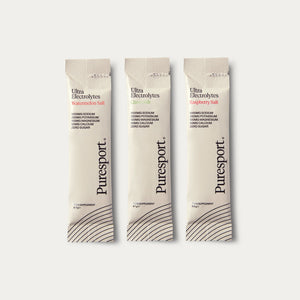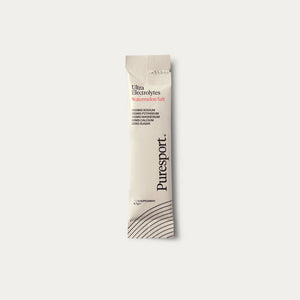A healthy gut is the foundation of everything. However, it can sometimes suffer from environmental factors and face a decline in its composition and function, which can be harmful. But what exactly is Gut Health, and how can it affect your body? Read this article to find out!

What is Gut Health?
Our gastrointestinal system, commonly known as the gut, is the main portal through which we intake and process food. But it is just one of its multiple uses. Our gut also acts as a disease combatant and communication centre. A healthy gut is vital in maintaining your overall well-being, from your digestive and nervous systems to your immunity and mental health.
You will have learned in school biology classes that the gut comprises the mouth, oesophagus, stomach, intestines, and so on, until the rectum. But, when talking about gut health, we are not referring to these organs but rather the bacteria and microbiome that live in your large intestine.
Microbiome? What is this weird-sounding word, and what does it mean?
To put it in simple terms, the environment inside your large intestine is often referred to as the microbiome, especially the trillions of bacteria that reside there. Fun fact, the number of your gut bacteria is way more than the stars in the Milky Way!
Also known as gut flora, the microbiome is vital in promoting health, and having the right balance of these microorganisms is essential. The microbiome consists of good and bad bacteria, each responsible for different functions. While the good bacteria facilitate digestion by feeding on fibre, the bad bacteria feast on processed foods and sugars to produce compounds utilised by the body. The symbiotic relationship between these two types and our body contributes to a strong and healthy digestive and immune system.
The Importance of Gut Health
Still not convinced about the importance of gut health? We’ve compiled a list of all the benefits of a health gut to help you understand why the gut really is the foundation of your health and wellbeing.
Digestive Health
As stated above, our gut harbours different varieties of "good bacteria" that help break and digest complex nutrients and facilitate digestion. A healthy gut promotes better digestive health. Any imbalance in its microbiome ecosystem can be dangerous and result in gastrointestinal complications such as Crohn's disease or the more common IBS.
Brain Health
Ever noticed how your behaviour changes when you are hungry? Or that sick-in-the-stomach feeling you get after hearing some bad news? These all prove that your gut and the brain can exchange signals with one another and are interconnected.
Research has shown that gut bacteria are responsible for producing several neurotransmitters, including dopamine and serotonin, also known as "happy chemicals," and positively affect our mood. An unhealthy gut can lead to mental illnesses such as depression and anxiety; therefore, you must take proper care of your gut.
Immune System
Did you know that 70% of your immune system resides in the gut? Yes, you heard it right. A healthy heart also has a hand in maintaining your immune system. But how?
Our intestinal flora breaks down the food into beneficial compounds that can boost the immune system and result in optimum functionality. Likewise, any disturbance in the gut can lead to the production of harmful substances and inflammation, and do we even have to discuss all the harms and detriments of inflammation?
Skin Health
Many people don't know that this vital organ is also connected with the largest organ. You might have had your dermatologist recommending a healthy diet for glowing skin; have you ever wondered why?
The walls of the gut act as a barrier to toxins and other harmful substances, preventing them from entering the bloodstream. But at times, this barrier can become leaky for one reason or another and can no longer keep these toxins out. This "leaky gut syndrome" prevents the absorption of nutrients vital for skin health and simultaneously excretes out the gunk through it, leading to congestion, acne, and breakout.
How Poor Gut Health Affects Your Whole Body
So now that we fully understand the importance of gut health, let’s look at how neglecting to look after our gut health can have negative impacts on all elements of our wellbeing.
Poor diet, lack of sleep, and medicines can sometimes interfere with the gut flora and cultivate an unhealthy environment for bacteria and the body. This can lead to poor microbiome diversity, intestinal permeability, inflammation, and ultimately poor gut.
But this imbalance of microorganisms is not only limited to digestive discomfort and can soon spread to your brain.
According to several studies, a poor gut can increase the risk of developing mental illnesses such as schizophrenia, bipolar disorder, and other psychological problems. Some neuropsychiatrists have also suggested that those who suffered gut infections in early childhood can later be predisposed to these neurological issues due to the adverse effects on their GI membrane. Furthermore, this damage to the mucous membrane can lead to inflammation, further damaging the delicate tissues and the gut-brain axis, consequently leading to hampered brain development.
What Causes Poor Gut Health
It is not always easy to tell what's upsetting your stomach and gut health. Sometimes the reasons may be obvious, but there are also some hidden factors which you may have not considered which may be negatively affecting your gut health. Taking precautions like avoiding certain foods and washing your hands before eating can help, but if you are looking for permanent relief and not just temporary comfort, you should try treating the primary cause. Some of the leading causes of poor gut health are:
-
Having a Poor Diet
Fruits, veggies, and other whole plants contain fibre and the nutrients needed for nourishing your body and nurturing good bacteria. Gut-health experts increasingly recommend a plat-based diet to help support the gut microbiome, and recommendations now state that eating 30 or more different types of whole foods per week is optimal to support a healthy gut. Whole foods literally feed and diversify the population of your gut microbiome, and a much better alternative to highly processed or refined foods which have a negative effect on your gut health, and are the common causes of digestive issues such as bloating and IBS.
-
Taking certain medications
Certain medications can imbalance your gut microbiota and weaken your gut, making you more susceptible to attacks of viruses, bacteria, and other pathogens. An example of such medication is antibiotics. Antibiotics are the go-to for treating infections due to their bactericidal activity. But remember, they can kill the good bacteria along with the pathogens. The result? Poor Gut! Hence, they are prescribed in adjunction with probiotics.
Other medications that can knock off your gut's balance include laxatives, proton pump inhibitors, and oral contraceptives in women.
-
Lack of sleep
We have all had days where we’ve been a little irritable due to a lack of sleep. Aside from its effect on the mood, lack of quality sleep can also lead to poor gut health.
How? Inadequacy of sleep causes our body to produce cortisol. This harmful stress hormone can damage the gut wall and increase its permeability. This can lead to leaky gut syndrome and poor digestion.
Additionally, melatonin, the sleep hormone, is responsible for helping propel food through your digestive tract by regulating GI motility. And suppose its concentration falls below the threshold. In that case, you are more likely to experience heartburn and acid reflux when you are just trying to get a good night's sleep.
-
Constant Stress
Ever heard of the "gut-brain axis"? Your gut contains the enteric system, which ties the two systems together. This link works both ways; the brain sends signals to your gut, and your gut sends signals to the brain.
When high-stress levels, your brain tries to combat it by producing norepinephrine, adrenaline, and cortisol. These hormones may be suitable for stress, but your gut? Not so much.
Cortisol and similar neurotransmitters bind to the gut and can slow things down in your gut resulting in various disorders such as constipation and bloating.

Symptoms of a Poor Gut
So now we know what causes poor gut health, let's look at some of the uncomfortable symptoms of poor digestive and gut health to see if you may be one of the people struggling with this common issue.
-
Stomach Discomfort
Does your stomach often get upset by constipation, diarrhoea, abdominal pain, and bloating? If so, this might indicate that your gut is going through a rough patch. According to this review, dysbiosis or the imbalance of gut bacteria can play a role in developing the above-mentioned symptoms and, ultimately, Irritable Bowel Syndrome (IBS).
-
Fatigue
Studies have shown that people with gut issues also have chronic fatigue syndrome. A weak gut can keep you up at night or reduce sleep quality, making you tired and exhausted.
-
Skin Irritation
As mentioned before, your gut plays a major role in keeping your skin healthy and acne-free. On the contrary, an unhealthy gut can adversely influence your skin through inflammatory reactions and lead to skin conditions such as eczema, psoriasis, and acne. Check out this article to learn further about the function of the gut in maintaining skin health.
-
Mood Issues
Serotonin is a chemical messenger responsible for regulating mood and promoting the feeling of happiness. Studies have shown that gut flora can influence this chemical's levels and mood. This review indicates that gut disturbances and inflammation can potentially cause increased stress levels and depression, and probiotics can be used to alleviate their symptoms.
-
Sugar Cravings
Similar to humans, different microorganisms like different foods. Some love dietary fibres, while others need carbs and sugars to thrive. And the more you indulge in these cravings, the more you cause these craving-generating microbes to grow. This results in a vicious cycle that is hard to break and ultimately results in the overgrowth of the pro-inflammatory, sugar-loving bacteria that can lead your body to other health issues.
-
Unintentional Weight Fluctuations
It is pretty easy to see how your gut health might influence your weight. When your gut is healthy and balanced, it can efficiently process and absorb the nutrients in a regular manner and allow you to enjoy your typical diet without affecting your weight unless there is a definitive change in your physical activity and eating habit. Likewise, some gut microbes can also affect the number of calories extracted from the food. This survey shows a link between microbial richness and average BMI.
So, if you are facing unintentional weight loss or gain despite your typical diet, lack of microbial diversity and poor gut health can be the culprits.
However, other serious diseases such as cancer can also cause sudden weight changes; therefore, we recommend consulting your physician before taking any action.
Long-Effects of Poor Gut Health
If not dealt with properly, poor gut health can lead to multiple other diseases, which can sometimes be more dangerous and challenging to treat.
As stated in this review paper, evidence indicates that an imbalance in your gut microbiota can cause neurodegeneration, cognitive dysfunction, and other cerebrovascular conditions. And these microorganisms can also heighten the chances of brain conditions like autism, Alzheimer's Disease, depression, and more by stimulating cytokines and inflammation in the brain.
Besides, experiments using animal models have shown that gut flora can also cause changes in the blood-brain barrier. The experiments indicated that the loss of intestinal flora could make this barrier more permeable. At the same time, a pathogen-free microbiota can promote the barrier's functionality.
Our extensive research shows these significant diseases are caused by poor gut health.
Depression
Gut flora is vital in developing stress, anxiety, and depression. Evidence suggests that the reason behind this is the crossing of isovaleric acid, synthesized by a poor gut, across the blood-brain barrier, which disrupts the release of neurotransmitter and hence cause depression.
Parkinson's Disease
Neurodegenerative diseases are often characterized by neuroinflammation and neuronal loss. However, another feature that most people overlook is increased intestinal permeability.
As shown in this paper, GI disorders strongly correlate with conditions such as Parkinson's. Scientifically speaking, this occurs due to lower quantities of anti-inflammatory Coprococcus and Roseburia bacteria and the overgrowth of the pro-inflammatory Ralstonia. You can read more about these gut bacteria in this article.
Alzheimer's Disease
Another consequence of microbial dysfunction is Alzheimer's. An imbalanced temperament of your gut can activate an inflammatory response responsible for amyloid formation, which is the primary reason behind this mental condition.
Investigation shows that probiotics can help alleviate the symptoms of Alzheimer's disease, further demonstrating the link between this disease and your gut.
Multiple Sclerosis
Aside from the commonly known factors, like smoking and obesity, a poor gut can also contribute to the risk of multiple sclerosis. This study shows that leaky gut and imbalanced microbiota profiles are often found in patients with multiple sclerosis and can increase the chances of relapse in these patients.
Stroke
How can we forget about the relationship between the gut and the immune system? Research shows that altered microflora levels can cause ischemic heart stroke, and antibiotics are prescribed in this scenario. These antibiotics work by increasing the number of T cells responsible for preventing stroke and keeping other heart ailments at bay.
Supplements to Improve Your Gut Health
Now that we have covered the basics of gut health and a poor gut, it is only fair that we discuss ways to treat it.
Even though a poor gut can lead to worsening conditions if left untreated, the good news is that there are ways to treat it.
Some ways to do this are by getting adequate sleep, good probiotics, regular exercise, and a balanced diet containing plenty of water and fermented food.
Or you can simply try our supplements to keep your gut in optimum condition. To help you get started, here are some of our best-sellers to improve your gut health.
#1. Trust Your Gut Capsules
In search of a supplement to aid digestion and balance gut microbe, you should definitely try our Trust Your Gut Capsules. These capsules contain a unique digestive blend that facilitates your gut's breakdown of food and optimizes its functionality and speed. This blend benefits those struggling with IBS, bloating, and other digestion problems.
Moreover, these pills contain Reishi, which promotes good bacteria due to its adaptogenic properties, and ginger and turmeric, which are anti-inflammatory and boost immunity.
#2. CBD Oil Tincture
Our CBD Oil Tincture is an excellent choice for those looking for something to help with their focus and energy levels along with the gut-promoting effects. This tincture comprises a mixture of ingredients that can benefit your gut, mind, and body.
For instance, CBD has been revealed to have growth-promoting effects on good microflora and scavenging free radicals responsible for causing inflammation. This supports whole-body health and is super effective in relieving joint pain, muscle- aches, and even skin conditions!
CBD is also important for regulating the sleep cycle and can result in better sleep quality, a risk factor for the poor gut. This sleep cycle regulation also means better mood, higher energy, and optimized focus. And, what else could anyone ask for?
#3. CBD, Turmeric, and Ginger Capsules
Lack of sleep and stress can significantly impact our gut state. If you are looking for capsules that can relieve stress and improve your gut function, our CBD, Turmeric, and Ginger Capsules are a great option! Not only will these capsules restore the aura of your gut, but the anti-inflammatory properties of ginger and turmeric can help reduce inflammation in your digestive tract and treat conditions such as indigestion and bloating.
How to Find the Right Gut Supplements
Now that you have taken the supplement route, you must choose the right one compatible with your lifestyle and gut problems. Nearly all supplements contain ingredients such as probiotics, digestive enzymes, magnesium, and herbs like turmeric, which are extremely valuable for digestive health.
Also, don't forget to check in with your physician first to listen to their recommendation and if any of these supplements would interact with any other med, you are taking.
Conclusion
Your gut is indeed your body's core and taking its proper care can curb all other digestive-related issues.
If you are still unsure about the ideal supplement for your poor gut, Puresport has your back! We are sure you will find one that fits your needs from our extensive collection. Happy shopping, everyone!









